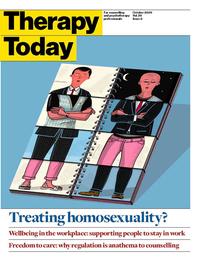I abide by and adhere to the British Association of Counsellors and Psychotherapy’s Ethical Framework.
As part of that framework, I practice confidentiality with all of my clinical work. This means that you can speak with me knowing that your friends, your family, your work colleagues and so on will not get to learn what you have said in a counselling session – and neither will my friends, family, work colleagues and so on.
But … what confidentiality also means is that I will discuss your case with a strictly limited number of other professionals for sound ethical reasons. All clients and patients of therapists should be made aware of this (as you will be during our initial meeting), but unfortunately this is not the case with some other professional therapists. I make it a particular point to discuss what confidentiality means – and what are its boundaries – with all of my clients at the start of counselling. During our initial meeting I will also give you a printed copy of our counselling agreement. After all, there’s a lot to remember during our first sessions.
Because confidentiality is not just about not talking about our therapy work, our written agreement explains what confidentiality means.
For example, in addition to the ‘not discussing what we say in the room’ part of confidentiality, I will have made you aware that:
- I meet with my choice of clinical supervisor one a month to discuss my cases and my work.
- During my yearly quota of continued professional development (eg training courses), I may refer to certain casework in order to review of reflect upon the case (you details will be anonymised, meaning I won’t use your name nor other identifying information).
- UK law may require of me to break our confidentiality if I learn of something that is unlawful.
The rest of this article expands upon these matters.
Confidentiality & Supervision.
As a private practising therapist who is a member of – and accredited by – the British Association for Counselling & Psychotherapy, I meet with a qualified supervising counsellor once a month for a minimum of 90 minutes. This is to discuss my practice and my case load and to check that I’m working to my best, keeping with ethical principals, and dealing with dilemmas that come up in most every case.
I will, from time to time discuss your case and our work together with my supervisor – but I will have first made sure that my supervisor does not know you, or is likely to come in contact with you (say, for example, though the workplace). I will refer to you only by your first name (or another name if you prefer). If I cannot assure your confidentiality in this manner – for example if my supervisor knows you in the work place or socially – then I will seek supervision from another supervisor for the duration of our work together.
Confidentiality & Continued Professional Development (CPD).
In seeking additional knowledge to keep me up to date with therapeutic thinking, it is sometimes useful to refer to an aspect of a case whilst attending a training course. If, when we discuss our agreement, you request that I do not refer to you during my CPD then I will respect this. Even so, it’s rare to-the-point-of-never-happens nowadays for me to bring up casework willy nilly, and I make sure that anything I discuss within the confines of other therapists in the context of CPD still keeps your identity anonymous and our casework vague enough to never identify you.
Confidentiality & UK Law.
Confidentiality sometimes has to be broken if I am required to do so by law (for example if you disclose to me your intent of harming yourself or others (including children) or if you disclose intent of committing a serious criminal offence or terrorism). This may also apply if I learn of someone else who may be being harmed or in danger, or is planning to harm others.
This does not mean that I will go running to the police the moment that I hear about something illegal, but it is part of my ethical commitments to you to inform you that the law may not protect your confidentiality.
I will intend to discuss with you of my (admittedly very rare) intent to break confidentiality of our work before I do so, but you need to be aware that the law may require that I take action first and without your consent or knowledge.
Declining your request to break confidentiality.
I have been discussing where confidentiality is maintained but expanded in the form of supervision and CPD, and have discussed UK Law where I may not be able to keep knowledge confidential.
There is another aspect: your request to reveal information about our counselling work.
Confidentiality is very important – even to ensure it is not broken in situations where you request it (for example, giving your permission to a solicitor to request that I give a report about our case work).
If we are still working together it is best for us to have a sufficiently detailed discussion of the consequences of such events before I decide how I will respond – and I will not automatically respond with a ‘yes’. What has been, up until this moment, vital to protect needs a serious conversation about why this need has now changed.
Should our counselling work have been completed, and we are no longer in contact, if I receive a request to reveal the contents of our counselling work with a third party… even having received your permission (eg written) to do so … I may decline [if I am unable to discuss the request and its consequences with you directly].
Confidentiality – In conclusion.
Counselling is not to be taken lightly – neither by therapist nor clients. Clinical work such as counselling and psychotherapy requires ethics, respect and the highest form of protecting both the therapist and the client’s right to feel safe during the work.
I take a particularly thoughtful approach to protecting confidentiality – and this may surprise a number of clients who may assume that (a) nothing is ever revealed about the case to anyone … or conversely (b) I will summarise our casework to anyone when the client wants me to.
Confidentiality is vital.







